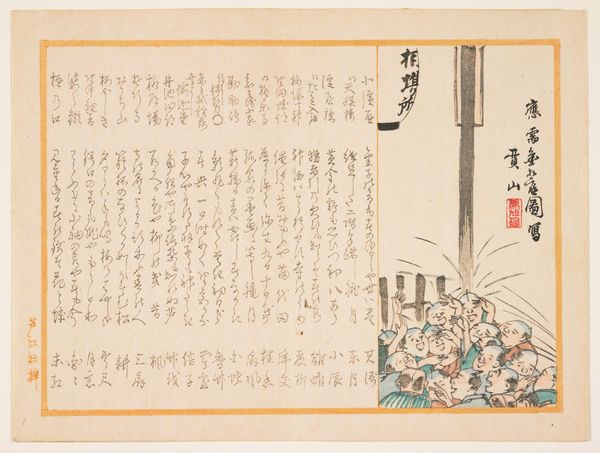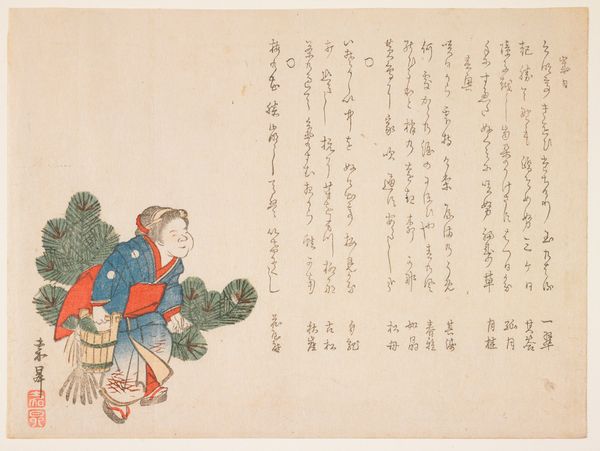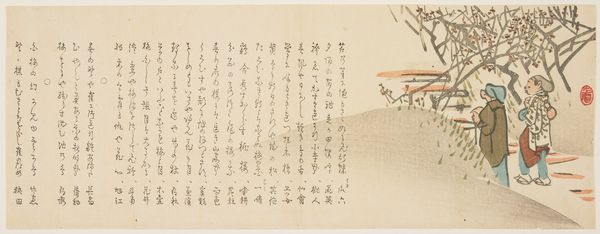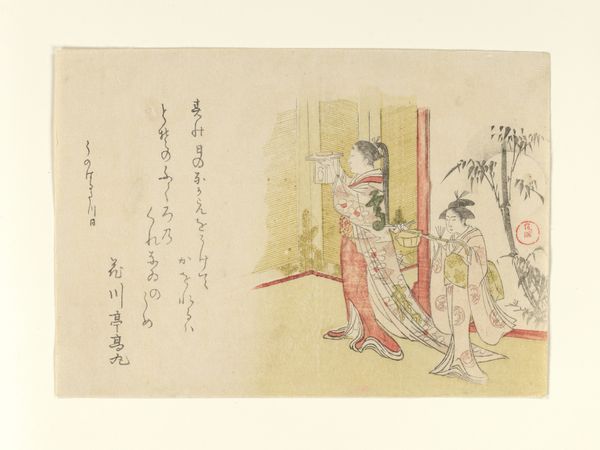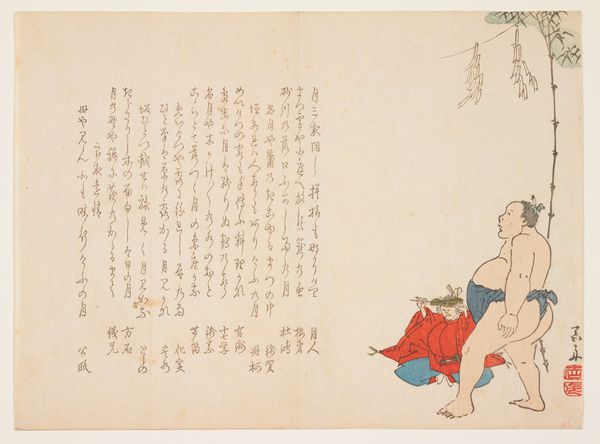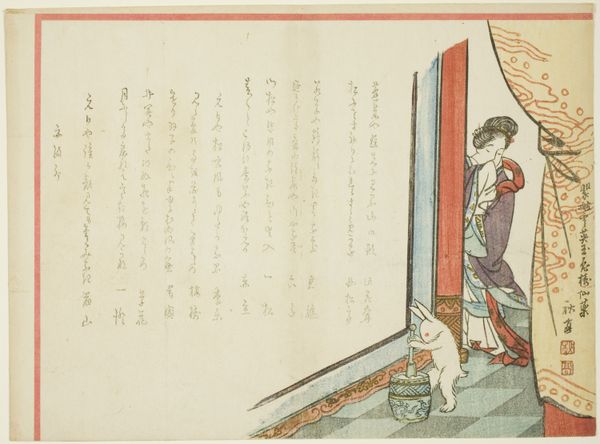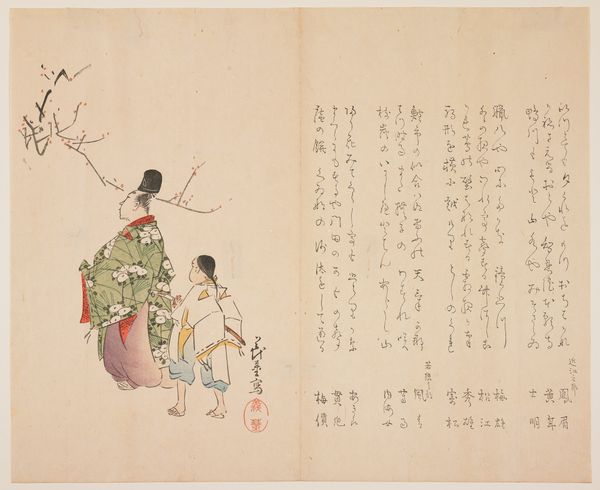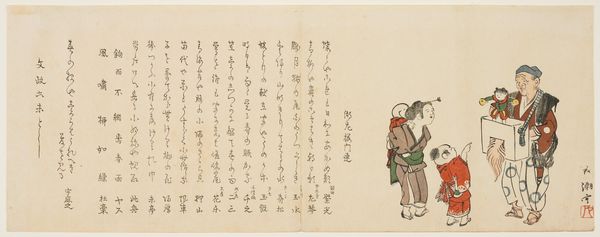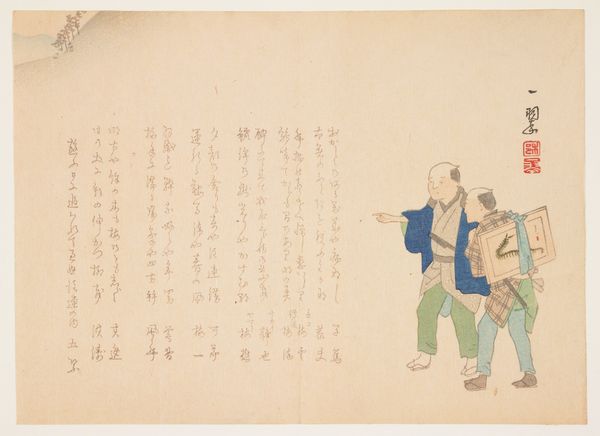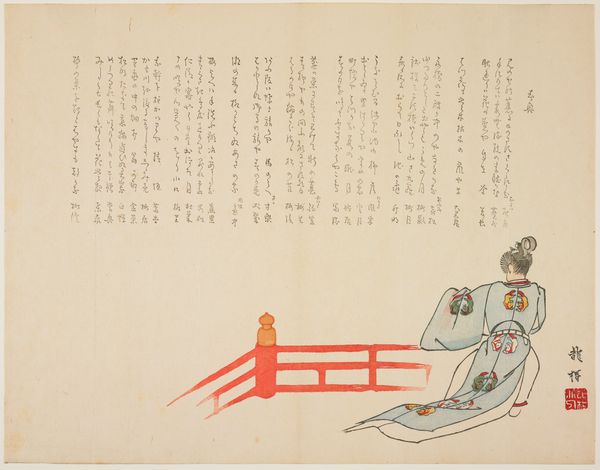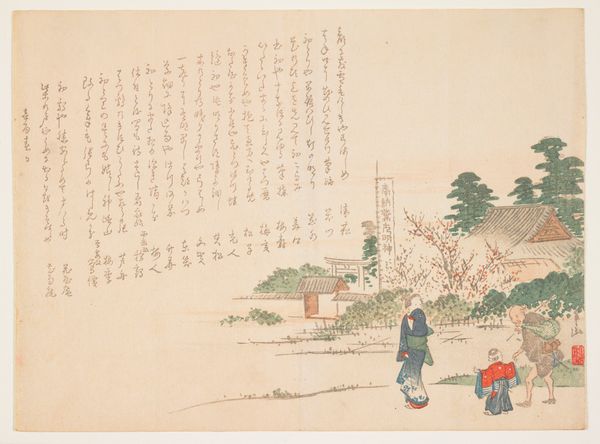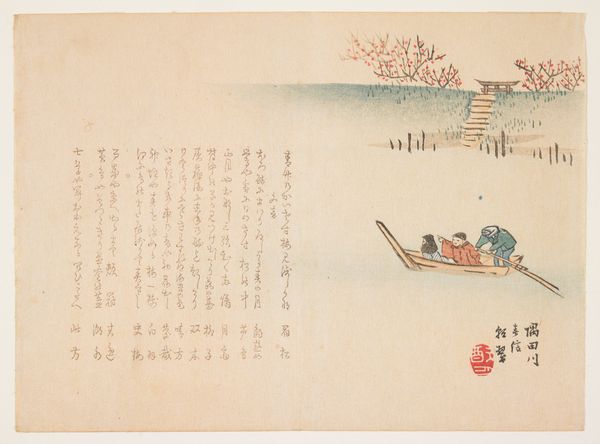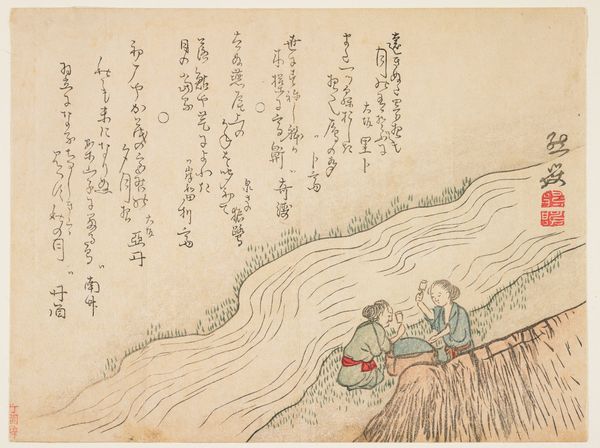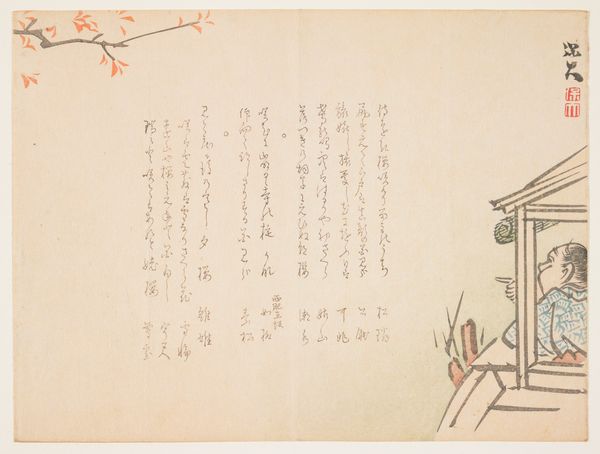
print, paper, ink, woodblock-print
#
aged paper
#
toned paper
#
narrative-art
# print
#
asian-art
#
landscape
#
ukiyo-e
#
japan
#
paper
#
personal sketchbook
#
ink
#
woodblock-print
#
genre-painting
Dimensions: 7 3/16 x 9 13/16 in. (18.2 x 24.9 cm) (image, sheet)
Copyright: Public Domain
This woodblock print by Kinoshita Roshū shows a man and a child on a bridge, likely made in Japan during the 19th century. It's a scene of everyday life, infused with the delicate balance between humanity and nature that was so central to the art of the Edo period. Consider the context: Japan was a society with a rigid social hierarchy, and art often served to reinforce or subtly question those structures. Woodblock prints like this one were accessible to a broad public and could therefore reflect a range of social perspectives. Were images like this produced through institutions such as a workshop? Were they made for a specific social class? How did the economics of printmaking affect the kinds of images that were made? The bridge itself, a meeting point, can be seen as a symbol of transition and connection. Understanding the social and institutional context is essential to understanding its meaning. Researching the artist, the printmaking tradition, and the cultural values of the time can reveal new insights into this artwork.
Comments
No comments
Be the first to comment and join the conversation on the ultimate creative platform.
